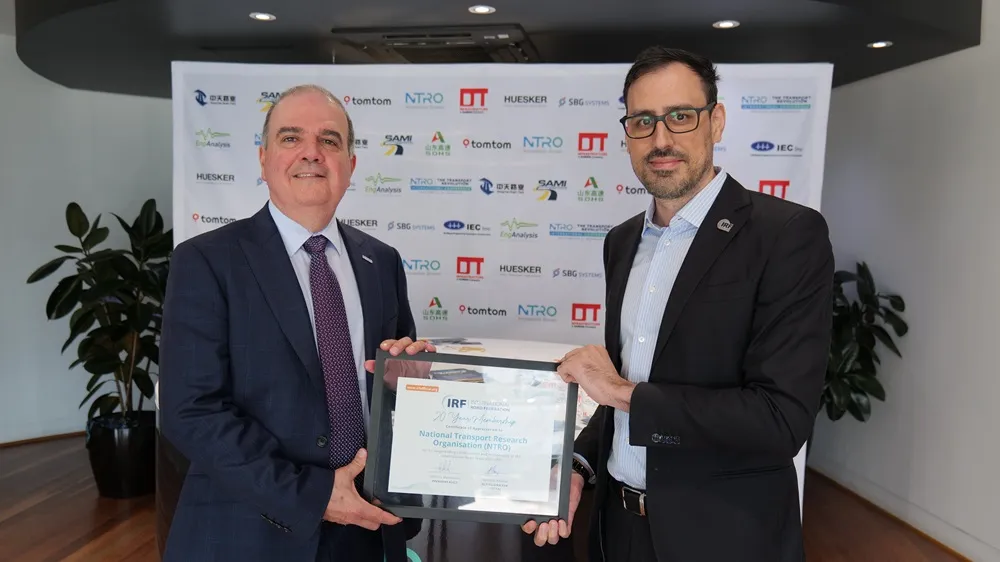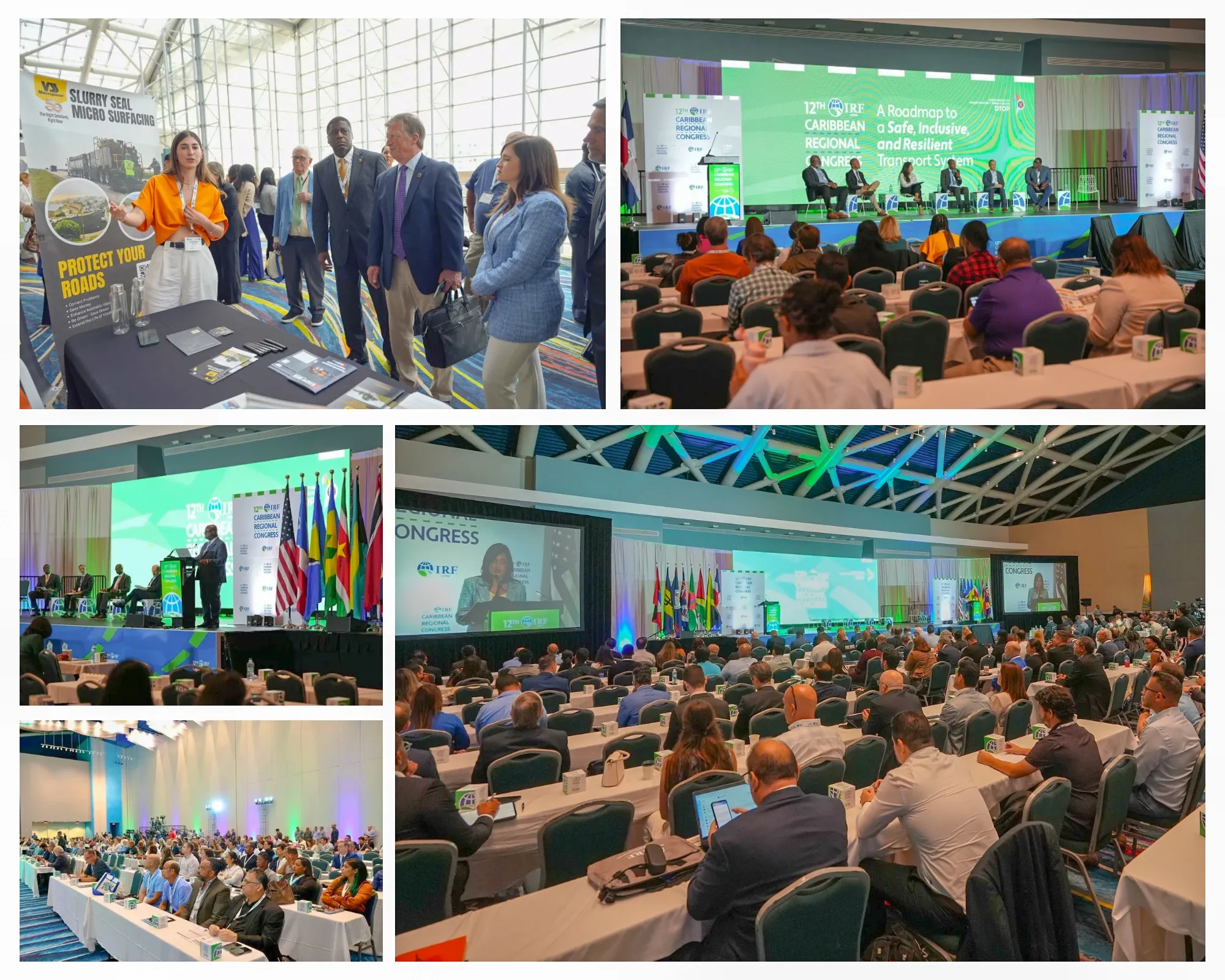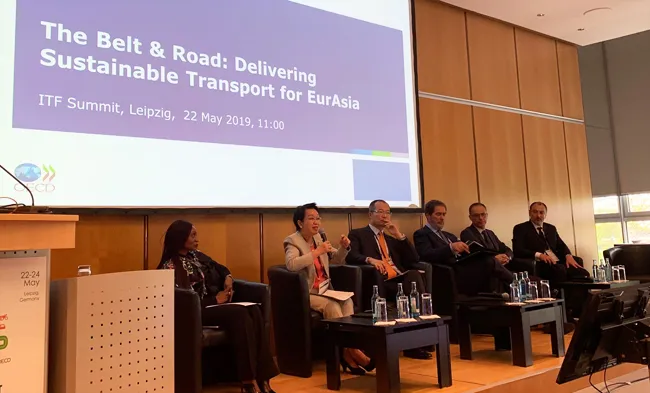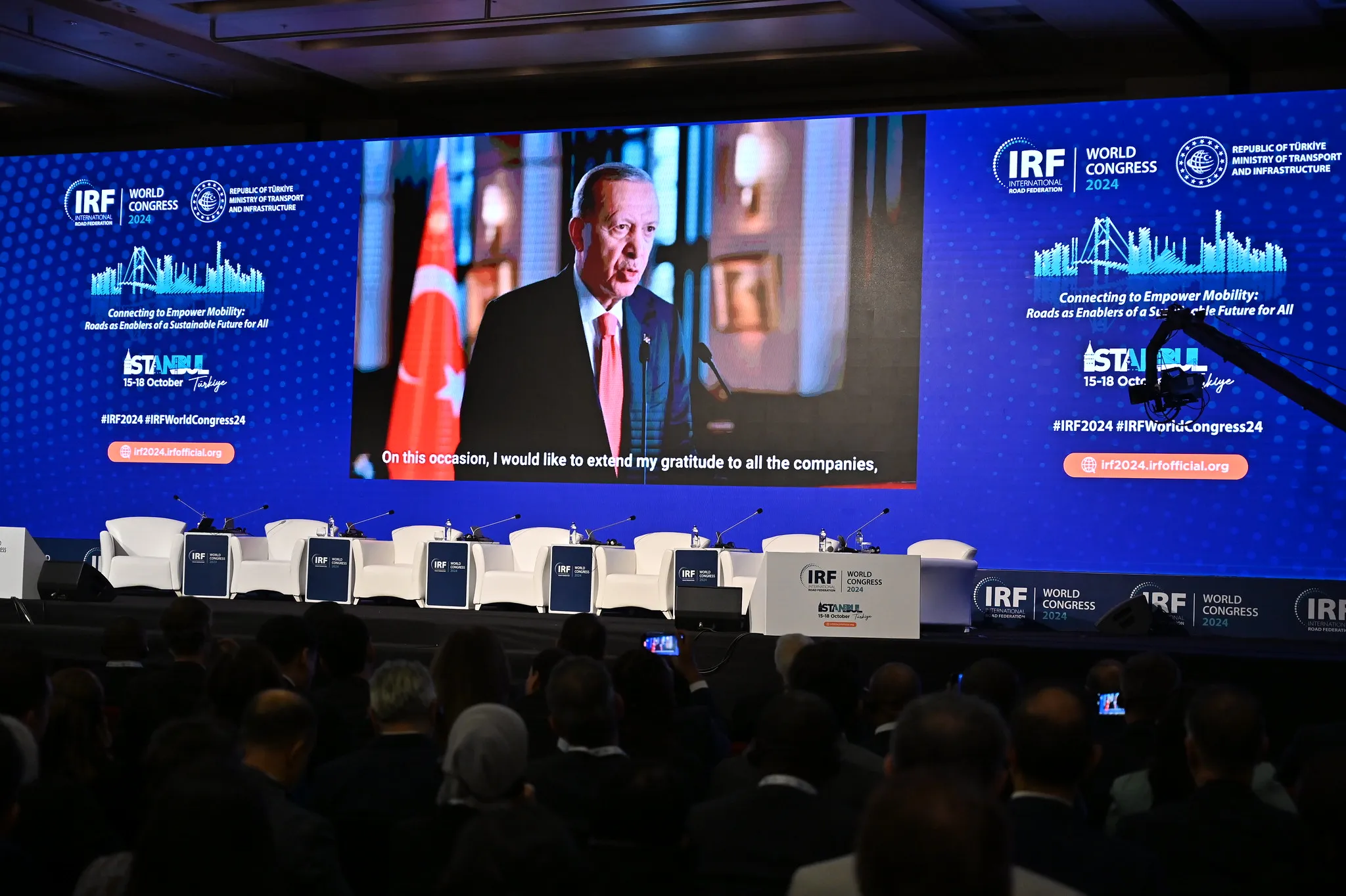
From 21 to 23 May 2025, more than 1,200 delegates from more than 80 countries gathered in Leipzig for the annual International Transport Forum (ITF) Summit, the world’s foremost platform for high-level discussions on transport policy. As in previous years, the International Road Federation (IRF) took an active part, contributing to critical exchanges on the resilience of global transport systems.
Building on the letter of intent signed with the ITF at the 2024 Summit, IRF acting director general, Gonzalo Alcaraz, met with ITF secretary-general Young Tae Kim on the final day of this year’s Summit to advance the collaboration. Discussions focused on the development of a forthcoming memorandum of understanding, which will frame joint efforts including capacity-building programmes, technical cooperation, and data-driven initiatives aimed at strengthening road transport systems worldwide.
On Wednesday 21 morning, the IRF co-organised its first side event during the Summit, “Transport System Resilience, Connectivity and Diversification in the Face of Climate Change and Other Global Shocks”, alongside Japan’s Ministry of Land, Infrastructure, Transport and Tourism, Life-Links, Kuehne Climate Center, Oris Materials Intelligence and the Asian Transport Observatory. Opening remarks from Alcaraz underlined that road networks face ever-greater threats from extreme weather, shifting climate patterns and geopolitical unrest.
That afternoon, the IRF convened a second session on “Effective Qualifications-Based and Gender-Responsive Procurement as a Tool to Enhance the Resilience of Transport Systems”, in collaboration with the Union for the Mediterranean and the International Federation of Consulting Engineers (FIDIC). Delegates examined how low- and middle-income countries, despite securing nearly one third of all climate finance, still grapple with an investment gap in transport infrastructure. Alcaraz said that qualifications-based selection ensures that technical expertise, innovation and value for money prevail over short-term cost-cutting.
The discussions in Leipzig provided a valuable platform to share practical approaches to infrastructure adaptation, digital transformation and fair procurement, issues that remain central as we move towards COP30 in Brazil.









